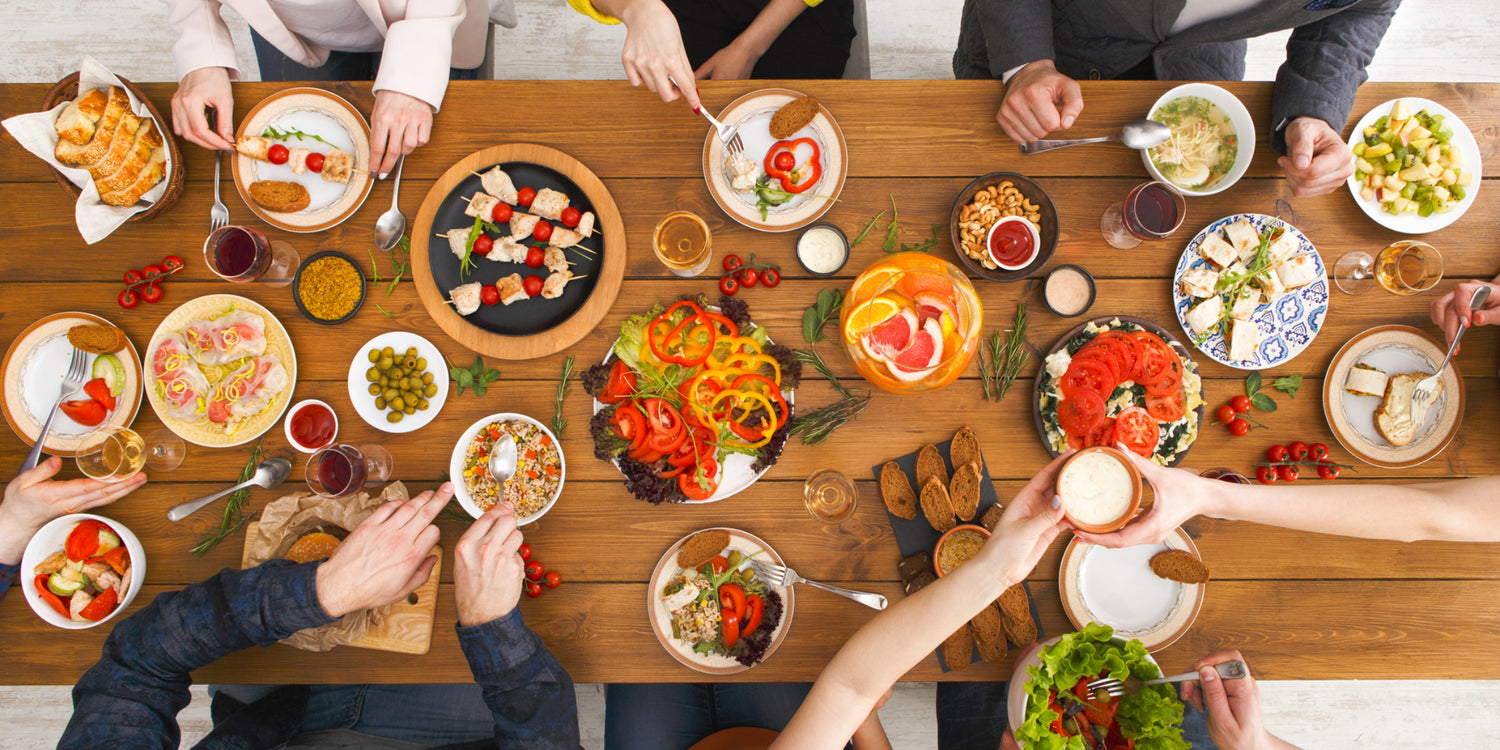Maintaining a healthy gallbladder is crucial for overall digestive function and well-being. Your gallbladder plays a vital role in breaking down fats, so the foods you eat can have a significant impact on its performance.
If you've been struggling with gallbladder issues like gallstones, inflammation, or pain, paying close attention to your diet can provide relief and support gallbladder health. By understanding which foods gallbladder-friendly and which ones are to avoid, you can design an eating plan that keeps your gallbladder functioning optimally.
After all, with the right dietary approach, you can minimize gallbladder distress and enjoy enhanced digestive comfort.
What Is the Gallbladder?
The gallbladder is a small organ just beneath the liver, on the abdomen's right side. It plays an important role in the digestive process by storing and concentrating bile, a fluid that is produced by the liver and helps break down fats. The gallbladder is connected to the liver and the small intestine through a series of ducts and serves as a storage reservoir for bile. When food enters the small intestine, the gallbladder contracts and releases bile into the digestive tract to aid in the digestion and absorption of fats. Without the gallbladder, the liver would continuously produce bile, and the absence of a reservoir to store it would lead to a constant flow of bile into the intestine. Understanding the function and importance of the gallbladder is key to recognizing potential issues and maintaining a healthy digestive system.
Why Is Gallbladder Health Important?
The gallbladder may be small in size, but it plays a crucial role in maintaining overall digestive health. Maintaining gallbladder health is important for the proper functioning of the digestive system.
The gallbladder releases bile into the small intestine as needed when we consume fatty foods. Bile helps in breaking down fats into smaller molecules, allowing for easier absorption into the body. In this way, the gallbladder ensures smooth digestion and absorption of essential nutrients.
When issues arise with the gallbladder, complications can occur that severely impact digestive health. One common problem is gallstones, which are hardened deposits that form in the gallbladder. Gallstones block the flow of bile, leading to excruciating pain and discomfort. In severe cases, these stones can cause inflammation of the gallbladder, known as cholecystitis, which requires immediate medical attention.
Blockages in the gallbladder can also result in infection, as stagnant bile creates an ideal environment for bacteria to thrive. This can lead to symptoms like fever, abdominal pain, and jaundice. If left untreated, infections can spread to other parts of the body and become life-threatening.
5 Foods You Can Eat for Gallbladder Health
Maintaining a healthy gallbladder is essential for proper digestion and overall well-being. By making mindful choices in our diet, we can support the health of our gallbladder. Gallbladder-friendly foods provide essential nutrients and aid in preventing gallstones and promoting optimal functioning of the gallbladder. By incorporating them into our diet, we can take important steps towards maintaining a healthy gallbladder and enjoying better digestive health.
-
Lean Proteins

Lean proteins can be beneficial for gallbladder health in several ways. They can help reduce the risk of gallstone formation by providing a low-fat and low-cholesterol source of protein. Lean proteins also support bile production, which is essential for fat digestion, and promote the emptying of the gallbladder, preventing bile stagnation. Additionally, lean proteins cans be part of a balanced diet that supports a healthy weight, as obesity is a significant risk factor for gallbladder issues.
-
Fruits

Fruits can benefit gallbladder health in several ways. The fiber in fruits like apples, pears, and citrus helps regulate bowel movements and prevent gallstone formation. Antioxidants in fruits reduce inflammation in the gallbladder and bile ducts. The high-water content in fruits keeps bile diluted and flowing properly. Maintaining a healthy weight through a balanced diet with nutrient-rich fruits is also important for gallbladder health. Overall, incorporating a variety of fruits into one's diet can be a helpful strategy for supporting gallbladder function and reducing the risk of gallstone issues.
-
Vegetables

Vegetables are also beneficial for gallbladder health. The fiber in vegetables like broccoli, Brussels sprouts, and leafy greens helps regulate bowel movements and prevent gallstones. Vegetables are rich in antioxidants that reduce inflammation in the gallbladder and bile ducts. Their high-water content keeps bile diluted and flowing properly. Vegetables provide essential nutrients that support gallbladder function and incorporating them into a balanced diet can aid in maintaining a healthy weight, further reducing the risk of gallstone issues.
-
Whole Grains

Whole grains offer several benefits for gallbladder health. The fiber in whole foods like oats, brown rice, and quinoa helps regulate bowel movements and prevent gallstones. Whole grains are also rich in nutrients like B vitamins, magnesium, and antioxidants that support bile production and gallbladder function. Additionally, the fiber and nutrient density of whole grains can aid in maintaining a healthy weight, which is important for reducing gallstone risk. Overall, incorporating a variety of whole grains into a balanced diet can be a helpful strategy for supporting gallbladder health.
-
Legumes

Legumes, such as beans, lentils, and chickpeas, offer benefits for gallbladder health. The fiber in legumes helps regulate bowel movements and prevent gallstones. Legumes are also rich in nutrients like folate, magnesium, and B vitamins that support bile production and gallbladder function. The anti-inflammatory compounds in legumes can reduce inflammation in the gallbladder, while their high fiber and protein content promote healthy weight management, which is important for reducing gallstone risk. Incorporating legumes into a balanced diet along with other gallbladder-supportive foods can be a helpful approach for maintaining overall gallbladder health.
5 Foods to Avoid for Gallbladder Health
Maintaining a healthy gallbladder is vital for proper digestion and overall well-being. The gallbladder plays a crucial role in the digestive system by storing and releasing bile to aid in the digestion of fat. However, certain foods can put a strain on this organ and potentially lead to gallbladder problems, such as gallstones or inflammation. It is important to be aware of the foods that can have a negative impact on gallbladder health. By making informed dietary choices and avoiding these problematic foods, individuals can support their gallbladder health and prevent potential complications.
-
Fried and Fatty Foods

Fried and high-fat foods can strain the gallbladder in several ways. The high cholesterol and saturated fat content can lead to gallstone formation. The increased bile production and gallbladder contractions required to digest these foods can cause inflammation and put stress on the gallbladder over time. Additionally, the delayed gallbladder emptying, and calorie-dense nature of fried and fatty foods can contribute to weight gain, which is a risk factor for gallbladder problems. To maintain good gallbladder health, it is generally recommended to limit intake of fried and high-fat foods in favor of healthier cooking methods and food choices.
-
Processed Meats

Processed meats like sausages, bacon, and deli meats can also be problematic for the gallbladder. The high fat, cholesterol, and additive content of these foods can increase the risk of gallstone formation and gallbladder inflammation. Additionally, the delayed digestion of processed meats can strain the gallbladder by requiring more bile production and contractions. As with fried and fatty foods, consuming excessive amounts of processed meats can contribute to weight gain, which is a major risk factor for gallbladder problems. Limiting intake of processed meats and opting for leaner, whole food protein sources is recommended to support gallbladder health.
-
High-Fat Dairy

High-fat dairy items like whole milk, cheese, and ice cream can strain the gallbladder due to their high cholesterol and fat content. This increases the risk of gallstone formation and gallbladder inflammation. Additionally, the calorie-dense nature of these foods can contribute to weight gain, which is a major risk factor for gallbladder problems. To support gallbladder health, it's best to choose low-fat or non-fat dairy options instead of high fat varieties and consume all dairy products in moderation.
-
Refined Carbohydrates

Refined carbs like white bread and sugary snacks can strain the gallbladder through rapid blood sugar spikes, increased inflammation, and promoting weight gain - all of which are risk factors for gallbladder problems. To support gallbladder function, it's best to limit refined carbs and instead choose fiber-rich, whole food sources of carbohydrates that can help manage blood sugar, reduce inflammation, and maintain a healthy weight.
-
Alcohol

Alcohol consumption, especially in excess, can negatively affect the gallbladder. Chronic, heavy drinking can increase cholesterol and triglycerides, leading to gallstone formation. Alcohol is also an irritant that can cause gallbladder inflammation and impair its ability to properly empty, further contributing to gallstone risk. Additionally, alcohol's diuretic effect and links to weight gain are other factors that can strain gallbladder function. To support gallbladder health, it's best to limit alcohol intake and stay hydrated when drinking.
Takeaway
Maintaining a healthy gallbladder is crucial for overall digestive function and well-being. The gallbladder plays a vital role in breaking down fats by storing and releasing bile. Issues with the gallbladder, such as gallstones or inflammation, can severely impact digestive health.
By understanding which foods gallbladder-friendly and which ones are to avoid, you can design an eating plan that supports optimal gallbladder function. Lean proteins, fruits, vegetables, whole grains, and legumes are all beneficial for gallbladder health. In contrast, fried and fatty foods, processed meats, high-fat dairy, refined carbohydrates, and excessive alcohol can strain the gallbladder and increase the risk of problems.
With the right dietary approach, you can minimize gallbladder distress and enjoy enhanced digestive comfort. Paying close attention to your diet is an important step in maintaining a healthy gallbladder and supporting your overall digestive well-being.
Renpho Health Tips
-
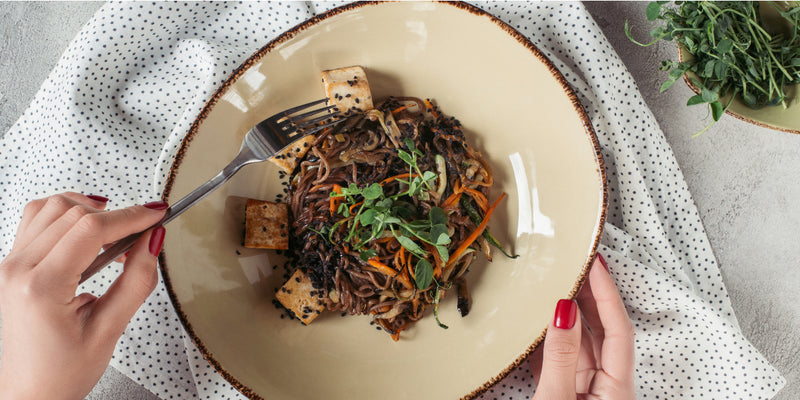
Top 5 Diet Tweak Tips for Healthier Gut
May 9, 2023
Read more >
-
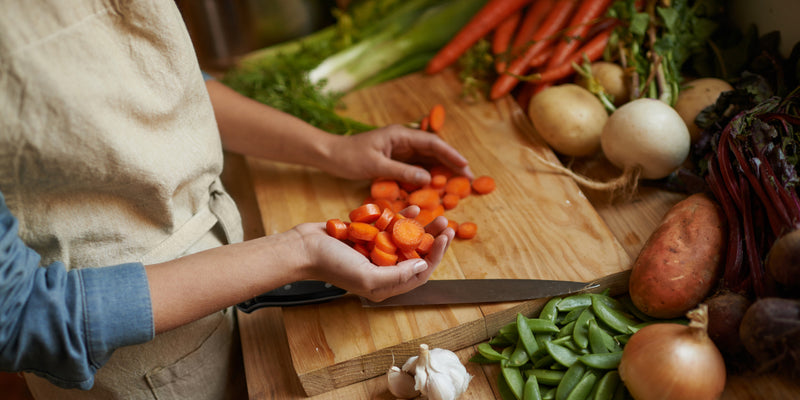
Gut Check: Prebiotics and Probiotics Explained
May 16, 2023
Read more >
-

Digital Detox Tips for Better Mental Health
May 3, 2023
Read more >
-
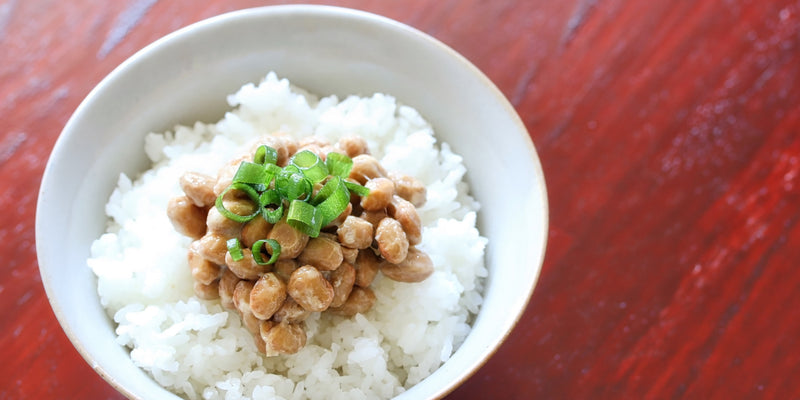
5 Reasons Natto is Good for You: The Latest TikTok Craze
May 2, 2023
Read more >
-
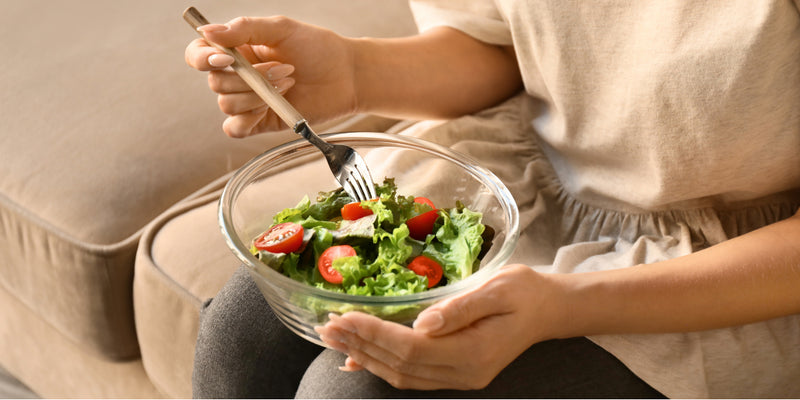
5 Biohacking Tips to Manage Your Blood Sugar and Increase Longevity
March 29, 2023
Read more >

